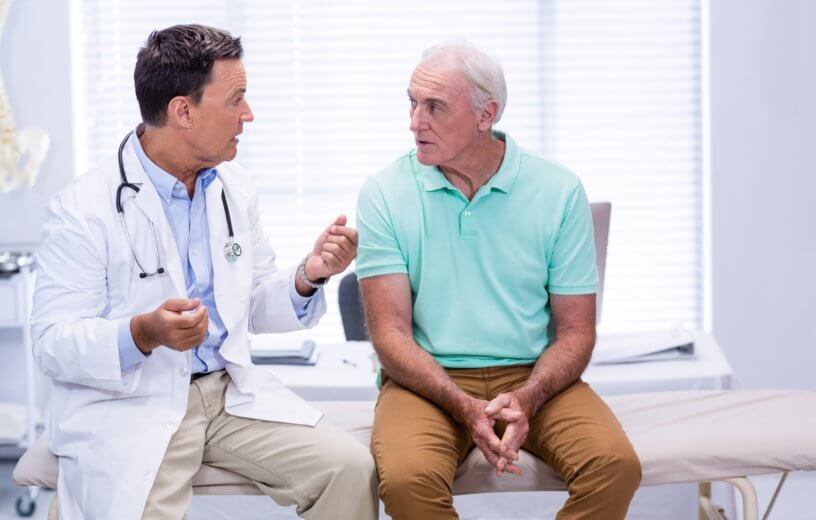
VIENNA, Austria — There’s certainly something to be said for believing in your own good health. A positive mindset promotes a healthy body. Still, new research suggests some humility can go a long way too. According to researchers, having too much self-confidence could actually be a bad thing when it comes to health.
Scientists from the University of Vienna report that older people who are over-confident about their own health don’t go to the doctor as often as they should. This can be detrimental to their health as they could be allowing medical issues to go undiagnosed.
Conversely, the study also found that the opposite holds true. People who are pessimistic about their own health tend to visit the doctor too often.
The study, conducted in collaboration with the Hertie School in Berlin, is based on data from over 80,000 Europeans ages 50 and older. Each individual’s personal level of self-confidence heavily influences their behaviors, actions, and decisions. Generally, people who overestimate their abilities often earn more money, make different investment decisions, and are more likely to be leaders.
That said, overconfidence is also linked to having a penchant for taking risks, having more accidents, drinking more alcohol, eating poorly, and insufficient sleep.
Self-confidence even impacts going to the dentist regularly
Of course, how we perceive our own health plays a big role in daily decisions as well. Deciding whether or not to visit the doctor for a checkup, for example. This new research finds that individuals who overestimate their health visit their doctors 17 percent less often than others who more accurately perceive their health. A similar trend was found regarding dental visits.
Interestingly, no such relationship was seen for hospital visits. Self-perceptions of health had no effect on the number and duration of hospital stays. Researchers speculate this is because hospital visits are more regulated and serious.
Meanwhile, older adults underestimating their own health visited their doctors 21 percent more frequently. Study authors explain this type of behavior offers both pros and cons. On one hand, visiting a doctor often will eventually add up and become pricey. On the other hand, paying close attention to one’s wellbeing isn’t necessarily a bad thing.
All in all, the team notes it is very difficult for any outsider to truly assess if a physician visit is “justified.” No one can answer that question but the patient.
The data used for this project was originally collected as part of the SHARE study (Survey of Health, Aging and Retirement in Europe) between 2006-2013. Each subject was asked to evaluate their own health. For example, subjects were asked if they have trouble getting up from chairs after sitting for long periods. Next, participants were asked to physically get up from a chair as a test. The research was structured this way to accurately ascertain if each subject had been overestimating, underestimating, or correctly assessing their health. Additional memory and mobility related misjudgments were also considered by researchers.
Most people correctly assessed their health (79%), with another 11 percent overestimating and 10 percent underestimating.
These fascinating findings actually build on an earlier study that showed individual health perceptions often differ depending on age, nationality, and education. Older people tend to overestimate their health more than younger adults. Regional differences were noted as well: Residents of Southern Europe have a habit of overestimating their health, while people in Central and Eastern Europe often underestimate their health. Better educated people usually correctly assess their health as well.
The study is published in The Journal of the Economics of Ageing.

I feel misled by the headline about self confidence affecting health. Being nonchalant about one’s own health is better described as obliviousness, or avoidance. On the other side of the spectrum is the Hypochondriac. Job posting: new editor needed at Study Finds.
If a person doesn’t believe good in their own self esteem most and all their life who will no matter what anyone thinks says or do about it.